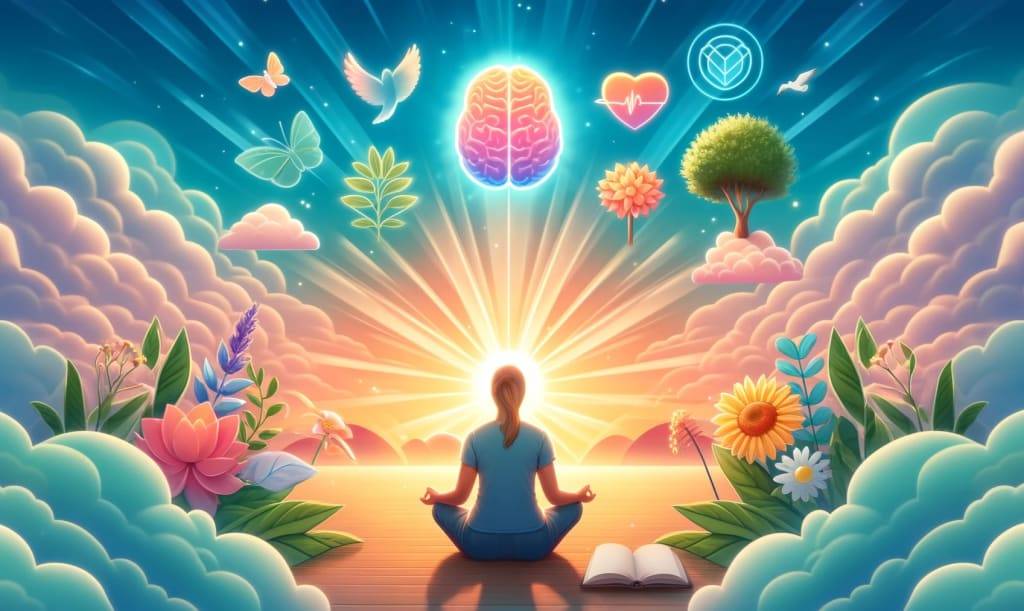Mental health has been one of the casualties of this fast-paced world, as most people focus on professional responsibilities, personal relationships, and societal expectations. But the truth is that mental health is as important as physical health, if not more so. It determines how individuals think, feel, and act, and how they respond to stress, their relationships with others, and decision-making. This article will examine practical steps for bettering mental health and having a balanced life.
1. Self-Care
Self-care is not selfish. It is, in fact the most essential component of mental health. First of all, dedicate time to rejuvenating and energizing activities, which could range from a nice warm bath or reading a good book to some hobbies. Basic self-care practices include proper sleep, healthy nutrition, and exercise. Lack of sleep has been directly linked with increased anxiety and depression. Therefore, target 7-9 hours of quality sleep at night and keep your diet well balanced with a rich intake of vitamins, minerals, and omega-3 fatty acids that are proven to enhance brain performance.
2. Build Strong Social Connections
Human beings are social animals. Meaningful relationships with friends, family, and colleagues can significantly improve mental health. Share your thoughts and feelings with trusted individuals, as talking about your emotions helps release pent-up stress. Joining community groups or clubs can also introduce you to like-minded individuals, providing a sense of belonging.
If face-to-face interactions are hard, then there is always online support groups or forums where you can connect with other people who have the same experience. It is not about the number but the quality of relationships that matter.
3. Practice Mindfulness and Meditation
Mindfulness is the art of dwelling in the present without judgment. It encourages awareness in your thoughts, feelings, and surroundings, which may help alleviate stress and improve mental acuity. Daily mindfulness exercises, even for five minutes, can have a great impact.
Mindfulness is complemented by meditation, which calms the mind and develops inner peace. Countless studies have proven that meditation reduces symptoms of anxiety, depression, and chronic stress. For beginners, apps like Headspace or Calm offer guided meditations that make it easy to incorporate this practice into your daily routine.
4. Manage Stress Effectively
Stress is a part of life, but chronic stress can be a nightmare for mental health. The first step in managing stress effectively is to identify what triggers it. Plan how to deal with those triggers, whether it is better time management, delegating tasks, or saying no to unnecessary commitments.
Engage in relaxation techniques such as deep breathing, yoga, or progressive muscle relaxation. Even simple activities like taking a walk in nature or listening to calming music can work wonders for stress relief.
5. Reduce Screen Time and Social Media
Though technology has some advantages, high levels of exposure to screens through social media platforms negatively impact one's mental well-being. Relentless comparison and exposure to idealistic situations leave a feeling of inadequacy and lower self-esteem in most individuals.
Limit screen usage by defining technology-free zones or hours in the day. Apply tracking apps on your screen that monitor and set limitations for its usage in a balanced manner.
6. Consult Professional Help Whenever Needed
Recognizing when to seek help is a sign of strength, not weakness. If feelings of sadness, anxiety, or hopelessness persist and interfere with daily life, consider consulting a mental health professional. Therapists, counselors, and psychologists can provide valuable tools and strategies to help you cope.
Evidence-based therapies, including cognitive-behavioral therapy (CBT), can target negative thought patterns and behaviors. Medication can also be a viable treatment option for some people, but that should be under the discussion of a licensed professional.
7. Cultivate Gratitude and Positivity
Cultivating gratitude is a simple yet powerful way to boost mental health. Take a moment each day to reflect on things you’re grateful for, whether it’s a supportive friend, a beautiful sunset, or personal achievements. Keeping a gratitude journal can help reinforce this habit.
Positive thinking does not mean ignoring the challenges of life; it's about facing them constructively. Change negative thoughts and think of solutions rather than problems.
8. Engage in Meaningful Activities
Having a sense of purpose can significantly improve mental health. Volunteer for a cause you’re passionate about, learn a new skill, or set achievable goals that align with your interests. Engaging in meaningful activities provides a sense of accomplishment and helps combat feelings of emptiness or boredom.
9. Maintain a Routine
A routine is a structured routine that gives someone a sense of stability and balance, thereby eradicating all chaos and confusion. Schedule time for work, rest, physical activity, and social interactions for the day but be flexible if changes come through.
10. Maintain Physical Activity
Physical activity, of course, benefits the body but also brings great benefits for the mind. Exercise releases endorphins; natural mood lifter. People who walk or swim or even dance can lower their symptoms for depression and anxiety.
Incorporate at least 30 minutes of moderate exercise into your daily routine. If that seems too intense, find enjoyable activities, gardening or playing sports.

Mental health is a journey of improvement that one needs to focus on with consciousness and patience. Self-care, meaningful relationships, mindfulness, and seeking help when needed can get you a healthier and happier mind. Remember, mental health is not a destination but a commitment to nurturing well-being throughout your life. You take small steps every day and, over time, see an improvement in mental and emotional resilience.


